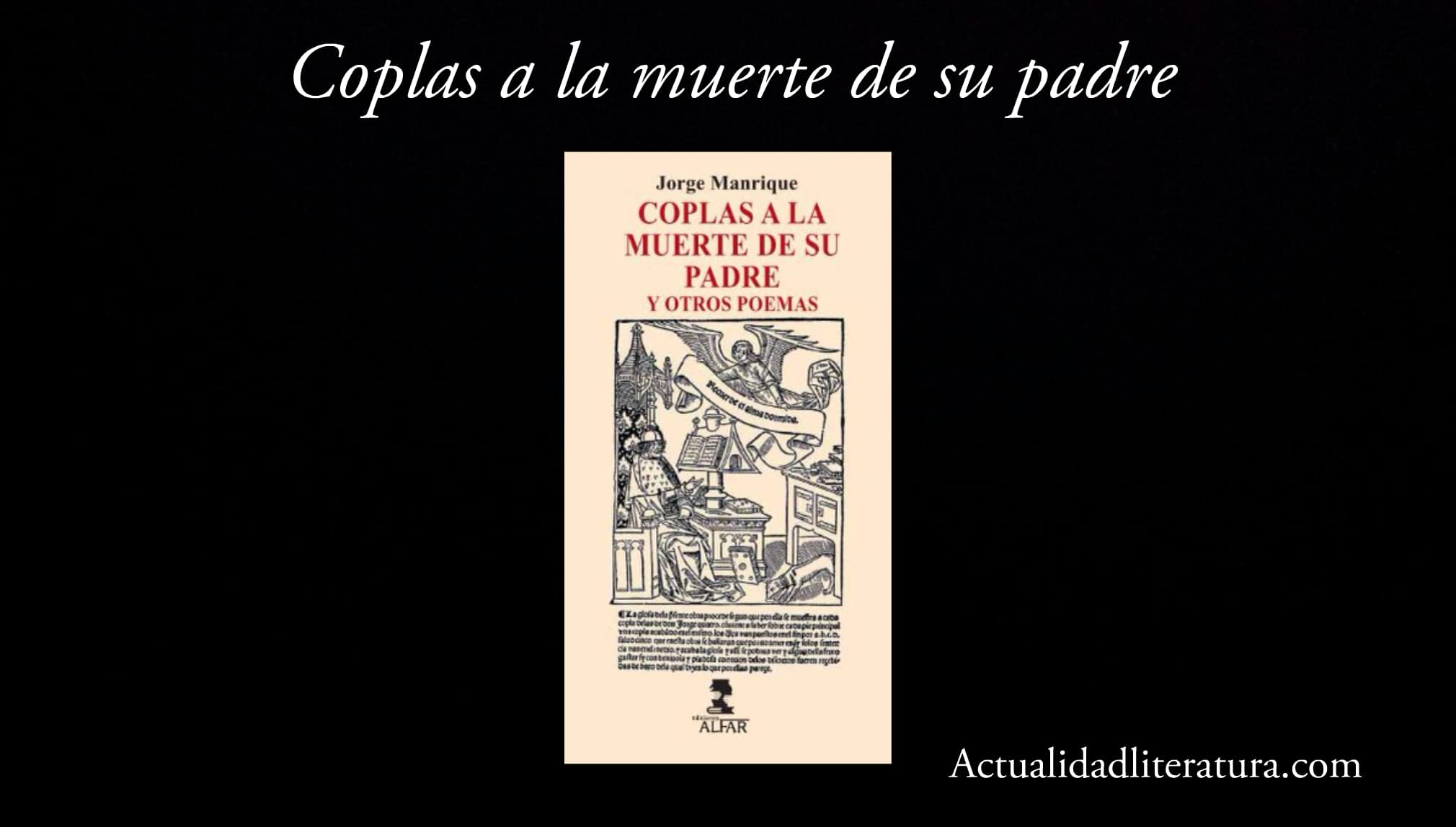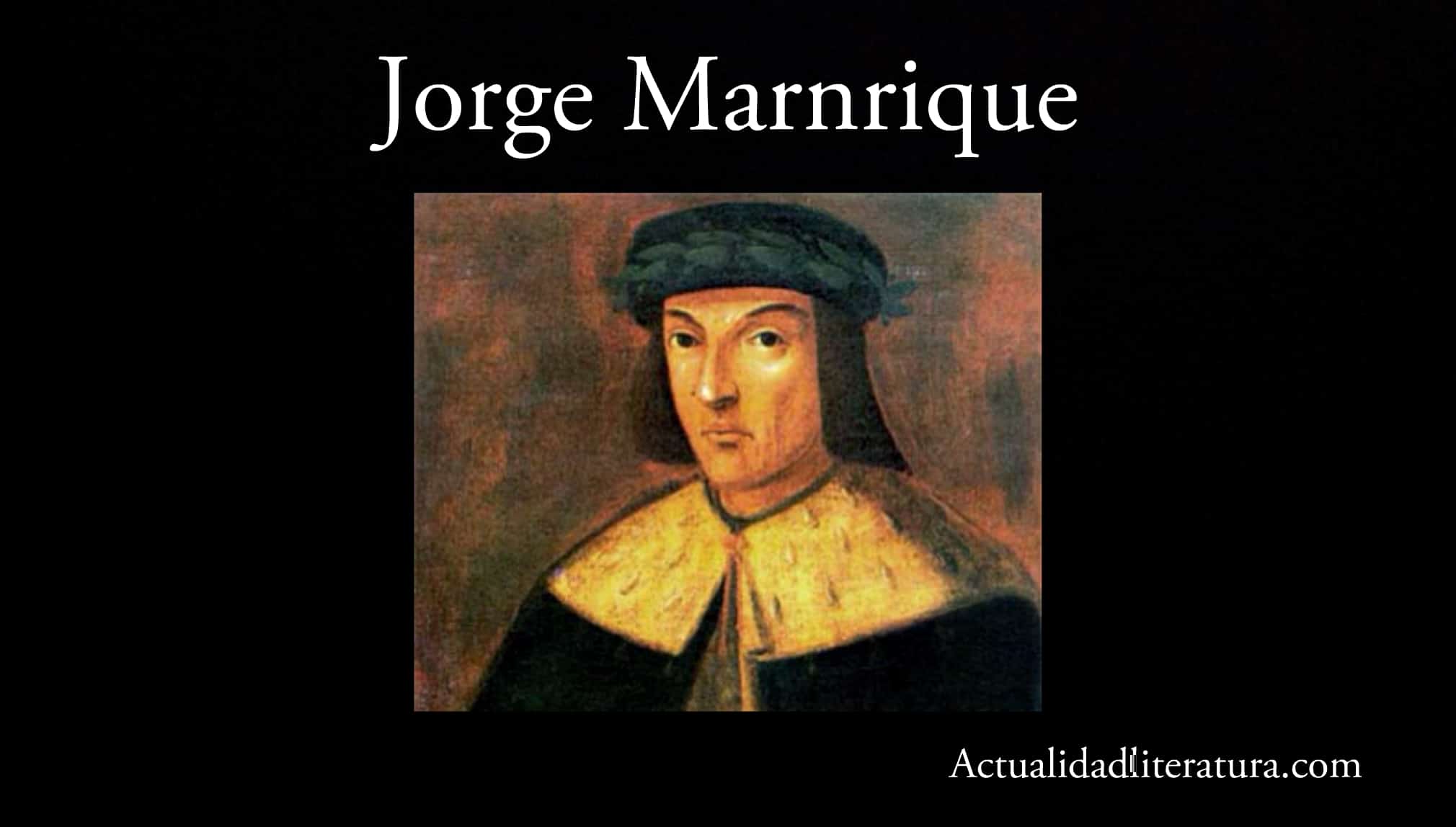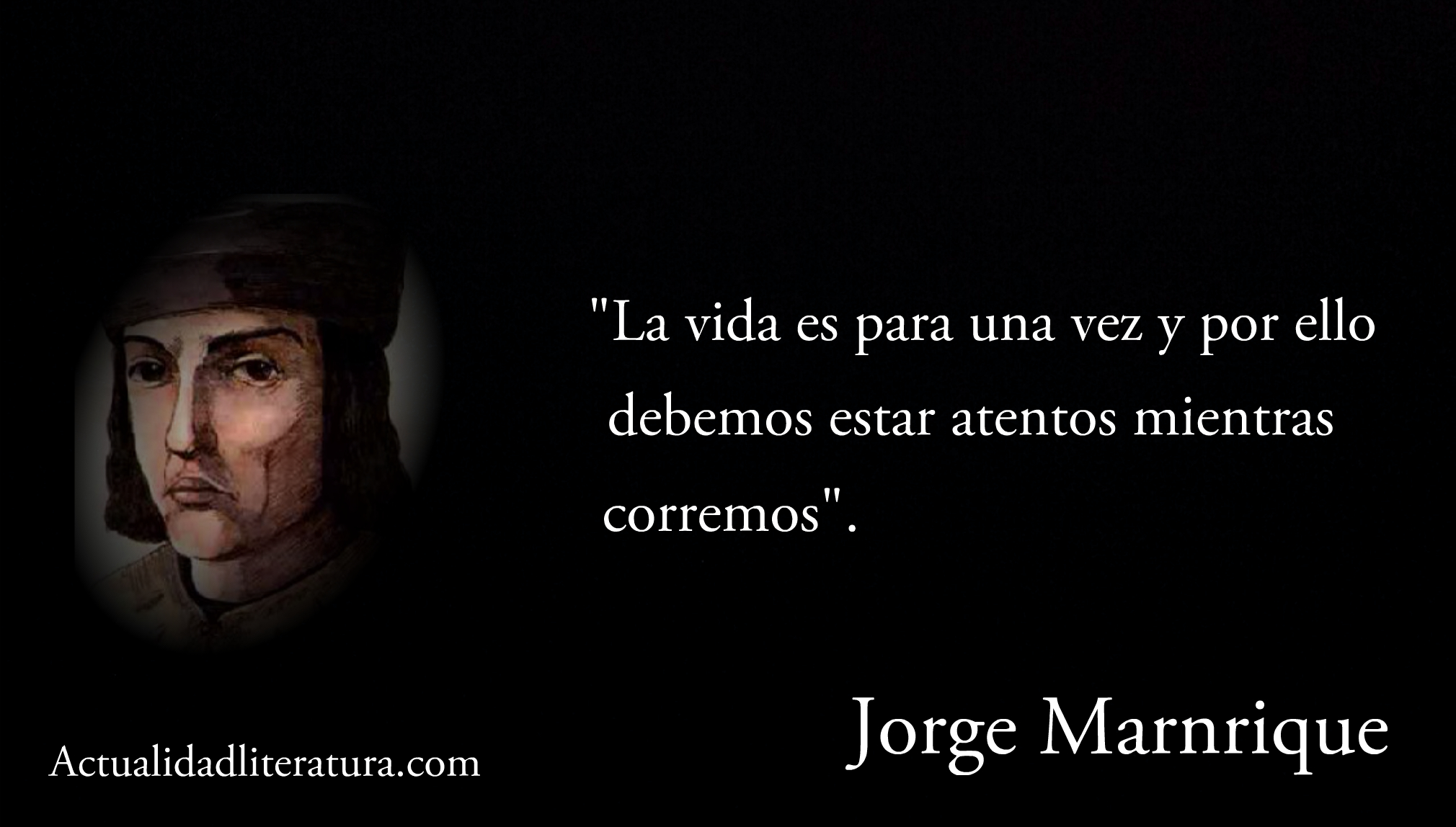
Coplas to the death of his father.
Coplas to the death of his father It is the best known work of the pre-Renaissance Spanish poet Jorge Manrique (1440-1479). The writing dates from November 11, 1476. It was completed just hours after the death of the master Santiago Rodrigo Manrique —the author's father and guide—, a victim of a cancerous tumor.
The poem represents one of the most important testimonies of literature during the period of the establishment of Castilian as the dominant language in Spanish territory. The same way, it is one of the best examples of what an elegy is. It is a lyrical subgenre whose central purpose is to mourn the death of a person and, more importantly, to honor his life and work.
The author
The date of birth of jorge manrique. Although historians usually agree that it took place during some time of the year 1440, in Paredes de Nava. This town today holds the category of municipality, it is located within the province of Palencia, in Castilla y León.
His literary work was shared with a military career, in which, he got promotions with relative ease. It would be precisely in the middle of war assignments when a premature death came to him (at 39). He was fighting within the ranks of the victors in the Great War of the Castilian Succession. This conflict ended with the definitive coronation of Isabel the Catholic.
Jorge Manrique's work
Despite his fleeting passage through the world of mortals and his responsibilities as a military man, Jorge Manrique's poetic creation was quite prolific. Not surprisingly, he is considered one of the most influential Iberian writers in practically all subsequent generations.
Pioneer, bold, scathing ... current
His burlesque, ironic and romantic style has maintained its validity during modernity and postmodernity. In fact, It is not unusual to find contemporary theater pieces and feature films with plots influenced by Manrique's schemes., to a greater or lesser extent. Likewise, he was one of the first authors to formally address eroticism, openly and without pseudonyms.
Consequently - as was to be expected in the fifteenth century - it resulted in several scandals and much annoyance within the circles of power. Although, beyond the thematic "focus" of its lines, in terms of narrative structure, It was a faithful exponent of the prevailing canons at the time.
A loving, ironic and burlesque poet in equal measure

George Manrique.
In many of his works, Manrique gave considerable space to sensuality and lust seasoned with lewd elements. For this purpose, extrapolated situations from his private life, as well as multiple of his romantic adventures and even his own marriage to Dona Giomar de Castañeda.
Eventually, in some of his verses he gave a glimpse of a more serious character, developing topics such as vows of poverty and the meaning of obedience. Equally, the controversies came from the hand of a black humor (too daring and ahead of its time) exploited in a direct way, mitigating. Therefore, Manrique accumulated a large number of offended (especially women).
Coplas to the death of his father
You can buy the book here: Coplas to the death of his father
Within the writings of Jorge Manrique, Coplas to the death of his father it is a unique work. Particularly in terms of structure, language, lyrical object and temper of mind, the dissimilarities are obvious when compared with the previous works of the Castilian author. In addition, after the tribute to his father, he did not have time to write much more.
The poet from Parede took advantage of the effervescence of mixed feelings that surfaced during his father's funeral acts to build a true jewel of Castilian literature. At no point did he shy away from the pain, nor did he fall into the temptation to sweeten his sensations. The result is an authentic and original work, capable of producing emotions in the "coldest" of readers.
Previous writings?
Some researchers of Manrique's work claim to have found indications that a good part of this piece was written before the death of the master Rodrigo Manrique. Theoretically, place their "early" composition in a relatively long period, which spans 10 years around the 1460s.
Similarly, it is presumed that the original order of the stanzas underwent alterations during the continuous transcriptions. It is not a minor fact, as it is important to remember that its realization took place when the use of the printing press was not yet a common issue.
Modular
Manrique uses a style whose title is a derivative of his own name: manriqueñas sextillas (also called “de pie quebrado”). Total, the work contains 40 verses, divided into three parts. In turn, they are composed of eight-syllable verses combined with others of three syllables, grouped in sextillae two by two. The rhymes follow the following combination: abc: abc- def: def.
Theme
The tribute to the father results in the enhancement of all his qualities. For Manrique, the paternal image is an example of virtue, rectitude and courage. Then, the irruption of death triggers all kinds of reflections. What should be expected of it? What happens to those who have died? ...
Those initial doubts raised mobilize the thread of the piece in the first part. Then another closely related question arises: where do they go (after they die)? In contrast, the enemies of the father appear to illustrate everything that is wrong.
Death: unexpected advisor

Phrase by Jorge Manrique.
The author uses the figure of death as a character with a leading role in the work. Although in the first stanzas he clarifies that he is only part of the same path traveled "in life", in the same way he is "someone" capable of advising those who are still "alive". In this sense, he recommends (death) not to forget the following: living is a temporary state and at the same time cruel.
Fragment:
"Living that is enduring
you don't win with states
worldly,
nor with delectable life
where sins dwell
hellish;
but the good religious
win it with prayers
and with tears;
the famous gentlemen,
with toils and afflictions
against Moors ”.
After death
Another slogan expressed by the grim reaper: the other life "is longer", it will "have a more glorious fame than is left here." Further, the author reflects on the true usefulness of material goods and other questions (Which in the long run turn out to be superficial).
Fragment:
"Thus the goods - dying
and with sweat - they seek
and the days;
evils come running;
after they come, they last
much more".
In the final lines, Manrique does not forget to mention the importance of God, as well as to eloquently express his admiration and fear for Christ. By last, it is necessary to place in context the personal transcendence of Coplas to the death of his father for the author. Being one of his last known works, it was very vindictive.